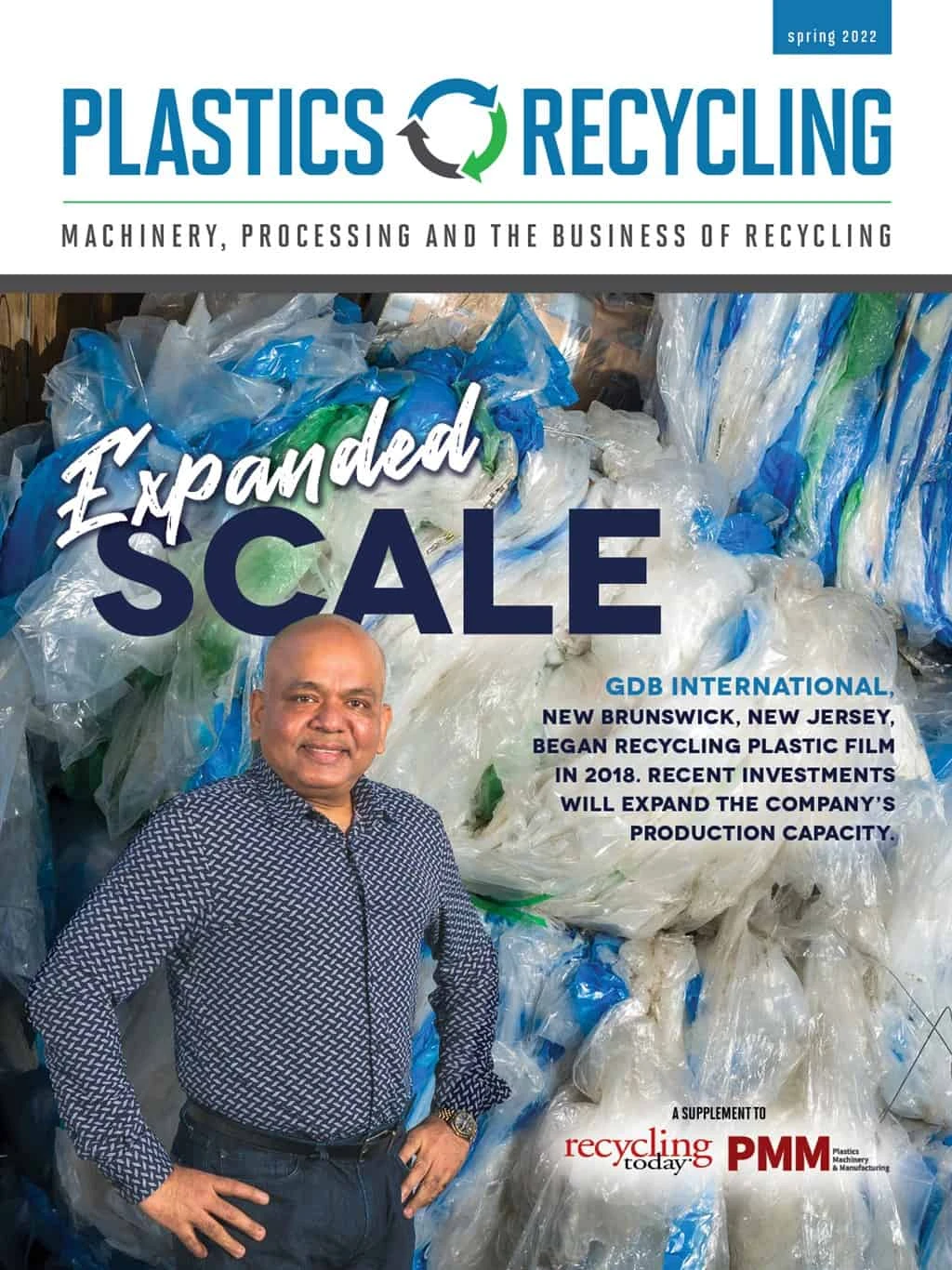
Additive suppliers BASF and BYK have responded to ongoing demand for circularity with new additives that maintain or enhance the properties of recycled resins.
BASF's Irgacycle
BASF’s new IrgaCycle additives allow processors to incorporate more recycled resin into their products while maintaining mechanical properties. The additives help processors meet sustainability goals, address consumers’ concerns about waste and meet increasingly strict regulatory requirements.
“The production of plastics from mechanical recycling is expected to almost triple by 2030, driven by improved technologies and regulation,” Thomas Kloster, president of BASF’s Performance Chemicals division, says in a news release about the new additives line. “This corresponds to a growth of around 10 percent per year.”
Germany-based BASF, with North American headquarters in Florham Park, New Jersey, says its IrgaCycle additives can boost the amount of recycled resin that can be incorporated into packaging, automotive, transportation and building and construction products. The additives address quality issues associated with recycled resins, including limited processability, poor long-term thermal stability and insufficient protection from weathering, BASF says.
The IrgaCycle line has five formulations targeting specific plastics and markets:
- PS 030 G enhances long-term thermal stability in rigid applications and is designed primarily for use with recycled high-density polyethylene (HDPE) and mixed polymers.
- PS 031 G improves processing and long-term thermal stability of recycled low-density PE and linear-low-density PE for use in films and flexible packaging.
- PS 032 G provides processing stability and long-term thermal protection for recycled polypropylene (PP) and polyolefin blends containing impurities.
- UV 033 DD combines weathering stability with enhanced thermal and processing stability for reclaimed HDPE and PP blends for reuse in outdoor items.
- XT 034 DD rejuvenates processing and long-term heat stability and helps neutralize impurities of the “first life” of the plastic, thereby improving the mechanical properties of recycled polyolefins.
The additives come in a granular form that is designed to be easy to dose during compounding or processing.

Byk’s Recyclobyk
Germany-based BYK, a global supplier of specialty chemicals with a U.S. subsidiary in Wallingford, Connecticut, has introduced the Recyclobyk line of additives. The line is designed to improve the quality of recycled resins, allowing them to be used in new, high-quality applications rather than downcycling them.
The additives can be added to PE, PP and polyethylene terephthalate sourced from battery cases, bottles, pails and beverage crates, the company says.
The Recyclobyk line consists of two products: Recyclobyk 4372 and Recyclobyk 4371.
Recyclobyk 4372 improves the properties of HDPE that can be processed, for example, into pallets and bottle crates. This is achieved via targeted restabilization of the polymer matrix, according to the company. Available in a granular form, Recyclobyk 4372 is a mixture of light stabilizers, antioxidants and co-stabilizers. It can be used with material originating from short-life applications, such as packaging. The company recommends it particularly for recycling HDPE, LDPE and PP for use in outdoor products. It also can be used for recycling polyolefins for film applications.
Adding Recyclobyk 4371 helps restabilize PP and polyolefin compounds that have been exposed to particularly aggressive substances. Available in granular form, it is a mixture of antioxidants and co-stabilizers that is intended to be used with polyolefin blends, PP contaminated with other polymers and mixed plastic from household or industrial material streams. The company says Recyclobyk 4371 preserves the melt-flow properties and the long-term thermal stability of the material, which enhances its value and potential applications.
Recyclobyk additives allow for the manufacturing of new everyday products from items that normally might not be recycled, the company says.

Explore the Spring 2022 Plastics Recycling Issue
Check out more from this issue and find your next story to read.
Latest from Recycling Today
- Phoenix Technologies closes Ohio rPET facility
- EPA selects 2 governments in Pennsylvania to receive recycling, waste grants
- NWRA Florida Chapter announces 2025 Legislative Champion Awards
- Goldman Sachs Research: Copper prices to decline in 2026
- Tomra opens London RVM showroom
- Ball Corp. makes European investment
- Harbor Logistics adds business development executive
- Emerald Packaging replaces more than 1M pounds of virgin plastic





